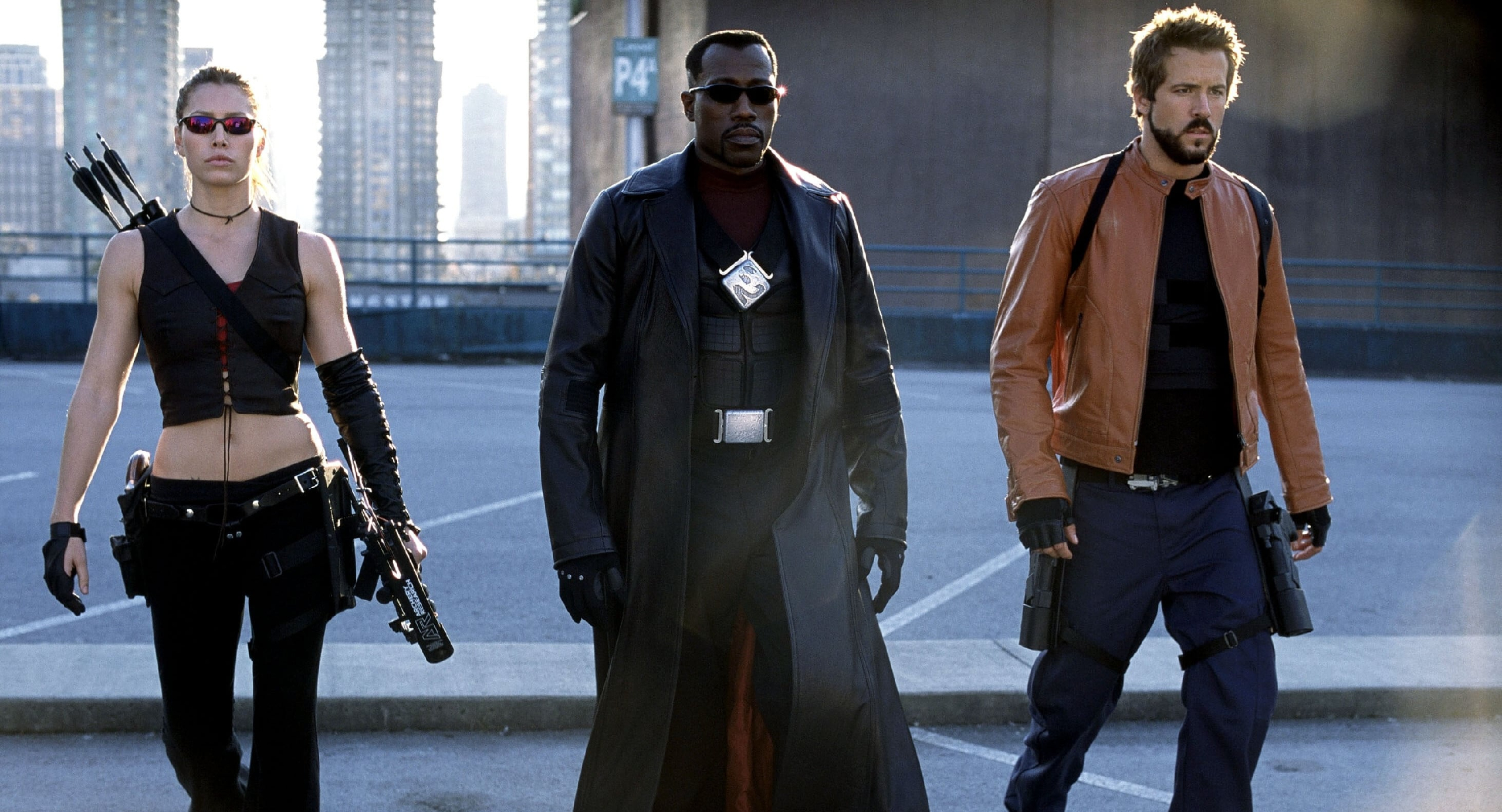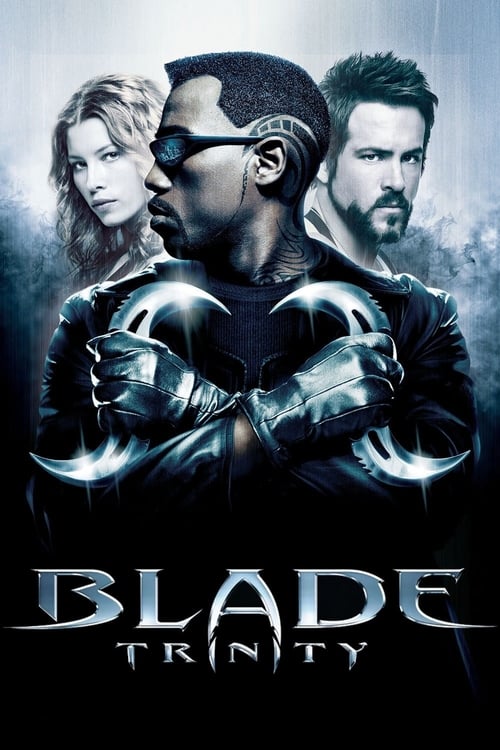For years, Blade has fought against the vampires in the cover of the night. But now, after falling into the crosshairs of the FBI, he is forced out into the daylight, where he is driven to join forces with a clan of human vampire hunters he never knew existed—The Nightstalkers. Together with Abigail and Hannibal, two deftly trained Nightstalkers, Blade follows a trail of blood to the ancient creature that is also hunting him—the original vampire, Dracula.
Blade: Trinity – Film Review
Published September 12, 2023

From the opening scene, it’s clear that Blade: Trinity struggles to establish a coherent narrative. The film kicks off with the capture of the legendary vampire hunter Blade (Wesley Snipes), who is soon revealed to be a vampire-human hybrid. This premise, while intriguing, is mishandled from the start, with the movie never fully exploring the implications of Blade’s hybrid nature.
The primary antagonist, Dracula, known as “Drake” (Dominic Purcell), is introduced as a generic, brooding villain with little depth or motivation. His character lacks the charisma and complexity that a worthy adversary for Blade should possess. Drake’s desire to eradicate humanity is poorly explained and comes off as a tired cliché.
Moreover, the supporting cast feels underdeveloped and uninteresting. The “Nightstalkers,” a group of vampire hunters led by Hannibal King (Ryan Reynolds) and Abigail Whistler (Jessica Biel), are nothing more than one-dimensional stereotypes. Their banter-heavy dialogue attempts to inject humor but often falls flat, leading to cringe-worthy moments that disrupt the film’s already shaky tone.
The plot meanders between action sequences and half-baked attempts at character development without ever finding a satisfying balance. Subplots involving familial connections and betrayals are introduced but quickly discarded or resolved with little emotional impact. The film’s pacing is uneven, leaving viewers disconnected from the story’s supposed stakes.
One of the most disappointing aspects of Blade: Trinity is its lackluster visual presentation. The previous Blade films were known for their stylish, gritty aesthetics that immersed audiences in a dark, vampire-infested world. In contrast, this installment opts for a more polished, generic look that robs the series of its distinctive atmosphere.
The action sequences, while abundant, fail to recapture the kinetic energy and choreography that made the earlier Blade films memorable. Fight scenes lack tension and creativity, with the overuse of slow-motion and CGI effects detracting from the impact of the combat. Even Wesley Snipes, known for his impressive martial arts skills, seems underutilized and uninspired in his role as Blade.
The film’s vampires are rendered with unconvincing CGI, which makes their already uninspired designs even less menacing. There’s a notable absence of practical effects and makeup, which were crucial to the franchise’s previous success in creating memorable vampire antagonists.
Blade: Trinity squanders its chance to provide meaningful character development for its protagonist, Blade. Wesley Snipes’ stoic portrayal of the titular character is flat and uninspired, devoid of the depth and emotional complexity seen in the earlier films. Blade’s internal struggle with his vampire heritage, a compelling aspect of the previous movies, is reduced to a mere afterthought here.
New characters like Hannibal King and Abigail Whistler, played by Ryan Reynolds and Jessica Biel, respectively, could have added fresh dynamics to the series. Unfortunately, they are reduced to quip-spewing, one-dimensional caricatures with little substance. The attempted romance between King and Abigail feels forced and lacks chemistry, adding to the film’s overall lack of emotional resonance.
One of the most glaring issues with Blade: Trinity is its lack of a clear directorial vision. David S. Goyer, known for his work as a screenwriter on the previous Blade films, struggles to establish a cohesive tone or style for the movie. The film veers awkwardly between attempts at dark, gritty horror and juvenile humor, leaving audiences unsure of what to expect.
The decision to introduce Dracula as the main antagonist, while potentially interesting, ultimately falls flat due to lackluster writing and an uninspired performance by Dominic Purcell. The film fails to explore the character’s mythology or motivations in any meaningful way, leaving him as a forgettable villain.
In the end, Blade: Trinity is a soulless and uninspired addition to a once-promising franchise. Its incoherent plot, underdeveloped characters, lackluster action sequences, and absence of a clear directorial vision make it a film that pales in comparison to its predecessors. Even die-hard Blade fans will find it difficult to defend this lackluster installment. With a franchise that started strong and then dwindled into irrelevance, Blade: Trinity is a stark reminder that not all sequels are worth the wait. It’s a stake through the heart of a once-great series.
